On the night of November 15, 1988, the 300-foot telescope in Green Bank, West Virginia collapsed. The extent of the damage was not known until the Sun rose on the scene. This photo shows the incredible ruin of folded steel that greeted the staff in the morning.
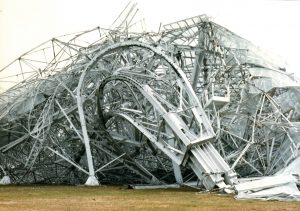
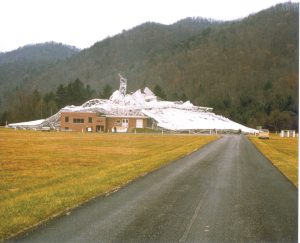
Wide shot of the collapsed 300-foot telescope
At 9:43 pm on November 15, 1988, the 300-foot telescope collapsed on top of its control building. No-one was hurt, but the telescope was destroyed. After an investigation, officials found a metal plate deep inside the telescope had finally worn out, and its position was critical to the structure.
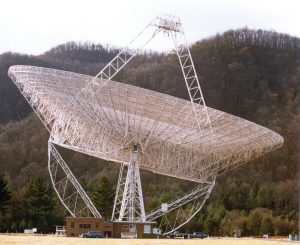
The last photograph of the 300-foot telescope intact
This is the last photograph of the 300-foot showing it intact. It was taken on the afternoon of November 15, 1988, hours before the giant dish collapsed.
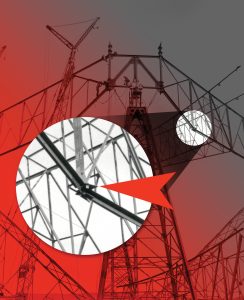
The culprit of the 300-foot telescope collapse
On the night of November 15, 1988, the 300-foot Telescope in Green Bank West Virginia collapsed. After an investigation, a large but sheared metal gusset plate was found in the wreckage. The exact triangular plate can be seen in this photo taken during construction of the 300-foot in 1961.
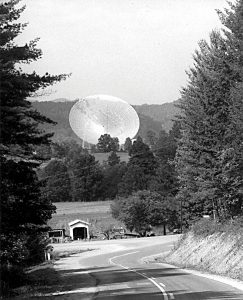
Viewing the 300-foot telescope from Route 28/92
For decades, this was the view of Green Bank’s 300-foot telescope from Route 28/92 heading north in West Virginia
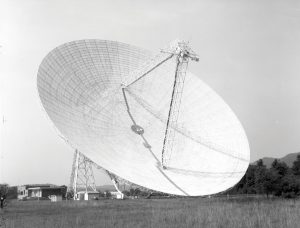
Green Bank’s 300-foot telescope receives new surface
In 1970, the 300-foot telescope in Green Bank, West Virginia got a new surface of higher-grade, finer aluminum mesh. During the following year, the telescope’s control building got a new addition: an RFI-shielded control room seen here as the taller half of the building.





